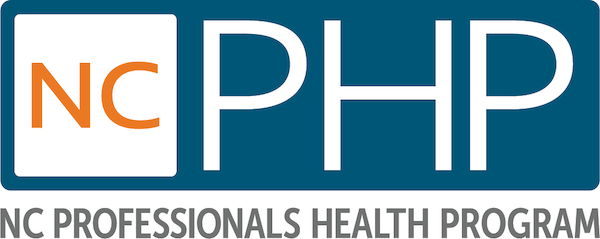05 Jul What Exactly is Job Related Burnout and Do I Have It? – By Clark Gaither, MD,FAAFP
What Exactly is Job Related Burnout and
Do I Have It? – by Clark Gaither, MD
The national burnout rate for healthcare providers is extremely high and rising rapidly. A study presented in the December 2015 issue of the Mayo Clinic Proceedings showed a 10% rise in burnout rates among physicians to 54.4% from 45.5% from 2011 to 2014. In order to recognize burnout for what it is, you must first know the symptoms or hallmarks of the condition.
At some point in your career, have you ever said to yourself, “I’m burned out”? Sure, any job can lead to frustration from time to time which can cause temporary negative feelings about one’s work. Negative feelings which persist and get worse with time, though, can actually lead to something called job related burnout (JRB). But what does it really mean to feel burned out?
Research conducted by Dr. Christina Maslach and Susan E. Jackson back in the early 80’s identified the three principle hallmarks of job related burnout. Dr. Maslach subsequently developed the industry gold standard tool for measuring burnout, the Maslach Burnout Inventory (MBI). In varying number and degree, these hallmarks will always be present when someone is burned out at work.
Let’s take a look at the three hallmarks of job related burnout one-by-one.
Emotional Exhaustion – It is a feeling of being emotionally depleted to the point where you feel you can no longer give of yourself at an emotional or psychological level to your company or the people you serve. Burned out individuals will often lament, “I have nothing left to give.” KEYWORD: Exhaustion
Depersonalization – The development of negative and cynical feelings leading to a callous and dehumanized perception of patients which further leads to the view that they are somehow deserving of their problems and troubles. KEYWORD: Cynicism
Lack of a Sense of Personal Accomplishment – You feel so little reward from what you do there is a tendency to evaluate yourself in negative terms. This leads to dissatisfaction and unhappiness in your work, creating a lack of a sense of personal accomplishment. You get to a point where you feel nothing you do is making any difference. KEYWORD: Inefficacy
Men and women will register these slightly differently. Women will usually hit all three of these and in the order presented.
Men will usually get cynical first followed by emotional exhaustion. Men may or may not hit the third hallmark of a lack of a sense of personal accomplishment. Most men will feel their work always has some meaning, at least to them. What this effectively means is by the time a man has experienced one hallmark, he is 50% burned out.
One thing is certain, if an individual can identify the presence of these hallmarks, they are either burning out or burned out. The costs of job related burnout are devastatingly high, not only for the individual employee, but the organizations they work for as a whole.
I should know. I have been burned out before as a family physician. In 2009, I had hit all three hallmarks of burnout. I felt horrible. I even felt guilty for feeling the way I felt. I didn’t know at the time exactly what was wrong. I just knew some things had to change. I would later discover I was suffering from job related burnout and I began to study it in depth.
I found out individuals who become burned out are at risk for poor job performance, chronic unhappiness, increased irritability, depression, anxiety and mood swings. Suicidal thoughts, suicidal actions, and drug and alcohol abuse are documented consequences of job related burnout. Bottom line, if you are burned out you will never feel you are living a life of purpose with passion.
Besides the obvious consequences of burnout, there is also a potential for a great loss of knowledge, expertise and creativity. A person’s vitality and creative force can be stymied or destroyed by burnout. Someone’s passion and sense of purpose can be completely subverted.
Physicians have quit medicine, CEOs have left the corporate world and experts in every profession have abandoned their chosen fields over job related burnout, all of which are tragedies. This country can ill afford to lose our best and most experienced physicians to this devastating, but preventable condition.
For hospitals or large provider groups, failure to address burnout in the workplace can result in a dysfunctional workforce, high staff turnover and inferior healthcare services. The result is a type of internal rot, not to mention the financial devastation this can bring. If quality care is your goal, it is impossible to provide where burnout rates are high.
The great news about burnout is that it is 100% reversible, treatable and preventable. When I realized I was suffering from job related burnout, I made some very simple changes right away which made all the difference in the way I felt toward myself, my patients and my profession. I was able to attain the state opposite of burnout – Engagement.
The key is recognizing the signs and symptoms of burnout and how it differs from job stress. Once burnout is recognized, steps can be taken to ameliorate or eliminate the job/employee mismatches which lead to job related burnout.
Can you identify with any of these – emotional exhaustion, depersonalization or a lack of a sense of personal accomplishment – within yourself, a colleague or your organization? If so, please consider reaching out to NCPHP through our CONTACT page or by calling our confidential referral line at 919-870-4480.
Check back for future posts where I’ll be covering other topics related to Job Related Burnout such as Causes, Remedies, Prevention, Mitigation Strategies, Engagement and How Burnout is Different from Stress.

